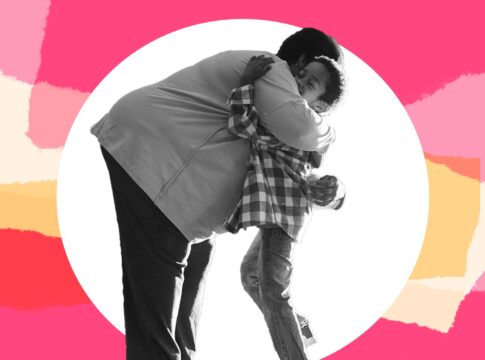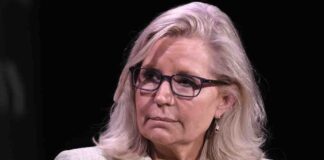While it’s not unusual for other industries to dedicate staff to influencing or changing public policy, it’s virtually unheard of in the relatively sleepy world of book publishing. Rosalie Stewart, however, has just been hired as Penguin Random House’s senior public policy manager, a new position that will fight the recent explosion in book-banning campaigns at schools and public libraries. At present, for example, officials in Texas and Iowa have attempted to argue that the book collections held by schools and libraries constitute “government speech” and are therefore not protected by the First Amendment. This bid to redefine the nature of public libraries was rejected by the 8th U.S. Circuit Court of Appeals in Iowa, but for Texas, the matter is being weighed by the notorious extremists on the “rogue” 5th Circuit. I spoke with Stewart recently about the battle before her. Our conversation has been edited and condensed for clarity.
Laura Miller: Tell me a little bit about your new job and what in your background made you want to take it on.
Rosalie Stewart: A lot of what I’m going to be doing is advancing freedom-to-read legislation at the state level. We’ve seen some states—Maryland, Illinois—advance legislation that protects the right to read, the right to learn, and the right to be read.
In terms of my background, I grew up in Texas in a very conservative evangelical family. I’ve worked on a lot of campaigns, local and state, there. I co-founded a group called MOVE Texas, which does youth activism and voter registration. When I got my master’s in public policy, I went to work at the American Library Association, and that’s when I really got to see the full picture of how this particular issue is playing out.
You’ve just come back from a Banned Books Week tour. How did that go?
On my first day of work, I flew out to Milwaukee. At the public library we handed out books that have been banned for various reasons, including The Diary of Anne Frank and Hair Love, among others. They had school groups coming in—elementary school kids, high school kids, all different levels. We were out there on a rainy day, handing out books, and I think we donated 3,700 books that day.
There have been two book-banning reports recently from the ALA and PEN America. The first said that book challenges are slowing down, and the second said that banning attempts have ramped up. Could you explain why there would be that difference?
My colleagues—my former colleagues, I should say—at ALA are very good at what they do, and they’re very smart. As a professional association, they just have a different focus in terms of what they’re counting. They’re focused on a very specific definition of a “book ban.” They only count book removals. But we know that this censorship is playing itself out in different ways. Not only are books being challenged, removed, and then put back on the shelf, but there is soft censorship. There’s a chilling effect in terms of the books that people are buying and teaching. I think that PEN America’s definition is a little more expansive and draws on a wider variety of sources. Censorship is not going down. Book banning is not fading away. That’s not what we’re hearing from people out there. That’s a major challenge: How do we fight back against this on such a diffuse battlefield? It’s happening at the state legislatures; it’s happening at the school boards; and it’s happening at the agency level.
I’ll give you an example. My home school district, the one I grew up in, is the North East Independent School District, in San Antonio. They have banned more books than any school district in Texas—which is also why this is a fairly personal issue to me. I talked to one of my old English teachers, who said that she had a list of books that she was given. Often these lists are coming directly from a group like Moms for Liberty. She was told, You need to remove these from your classroom library shelves. So not even the school library. Literally in the classroom. Now, she told me that she had found a work-around, because often these lists are not comprehensive. So she was able to find some literature for her queer students that she was able to buy that wasn’t on the list. Frankly, these groups just don’t have a very wide view. They have a few hot-button books that they’re looking to ban. So people in their individual way are fighting back against it.
What do you think has caused this relatively recent explosion?
In some ways it’s an iteration of the same old culture war. Maybe a decade ago, these people were talking about “Oh, trans people are invading your public bathrooms.” There was a concerted pushback against that, and now they don’t talk about it so much anymore. A few years ago, it was the anti–“critical race theory” legislation. They saw a massive backlash—not that that issue is completely gone away, but it’s certainly not at the forefront anymore. So part of what I see with this is a political attempt to rile up a base or a certain group of people. I think it was just, to use a phrase, our time in the barrel.
But I do think that part of why books and librarians in particular were targeted is that, unlike teachers groups, we didn’t have this massive political infrastructure to create consequences, so to speak, for those targeting us. So we are a relatively easy punching bag. We do see so much movement happening in the last few years, everyone moving in a million different directions trying to fight back against this. But I think this was a group, an industry, that was not used to being the target of this kind of coordinated attack.
So where is this battle concentrated? Is this mostly happening at school board meetings or in statehouses or in courtrooms? Is there an epicenter of this fight at the moment?
Litigation has been our focus. We have these ongoing lawsuits. In Iowa, we got a favorable ruling out of the 8th Circuit Court of Appeals, which is new momentum for our lawsuit there. These book bans are flagrantly unconstitutional besides being all the other things that they are: inefficient, discriminatory, etc. Where I’m looking to come in is on the legislative side. We have been trying to kill adverse legislation, and that’s been pretty successful. But where we really have an opportunity now is in freedom-to-read legislation, legislation that’s going to protect our authors’ right to be read. It’s going to protect students who need access to diverse materials, and it’s going to protect the teachers and librarians.
A lot of book banning is happening in places like California or New York. Blue states, but at the local level we are seeing book removals, book challenges. We want to start trying to affect state-level legislation in places where we know that the state leaders are inclined towards the freedom to read.
It seems unlikely you’ll get freedom-to-read legislation passed in the states with the most bans, like Florida and Texas. In fact, in those states it’s a matter of fighting off legislation restricting that freedom.
We’re pursuing different strategies in each different place. I don’t think that we’re going to have a legislative breakthrough in Texas next year, no. There, we engage in litigation.
In Llano County, Texas, for example, rather than removing certain books from the shelves, they basically wanted to close the library system entirely. I do think that points to this being a larger fight, along with the defunding of public education writ large. Places where that movement is strong already—Texas has been defunding public education for years—book bans are part and parcel of that agenda, and they have that existing political infrastructure to push that agenda.
The perception is often that this is about shielding children from inappropriate materials in schools, but in fact, it has expanded to public libraries, libraries that serve adults along with the community at large.
One thing the ALA report did find was going up is bans there. They found a 92 percent increase in books targeted for censorship at public libraries in 2023.
[Book banners] talk a lot about parents’ rights. What they don’t talk about is the fact that parents who want their children to have access to age-relevant materials that discuss themes relevant to the experiences of Black people, of people of color, of queer people, of young girls—those parents don’t get a choice if those materials are removed from the school library or from the public library. Now no one in the community has access to it because certain community members didn’t want their children to have access to it.
A study by the Knight Foundation showed that 78 percent of people trust their public schools to select appropriate materials. So this is a fringe view.
What strategies have been the most effective in protecting the freedom to read?
Litigation has been particularly effective in actively swatting down attempts at censorship. But this moment calls for something a bit different. We really need to build a political movement. We have to make it clear to these politicians who want to demonize our teachers, demonize our librarians, demonize our kids by telling them that their experiences are not welcome on the shelves of the library—they need to understand that there are political consequences for that, and that the American people are not with them on that.
You know, coming from the kind of background that I do, I understand how this cohort works. It’s designed to make you feel isolated and alone, but people are not isolated or alone. Public opinion is on the side of free expression.




